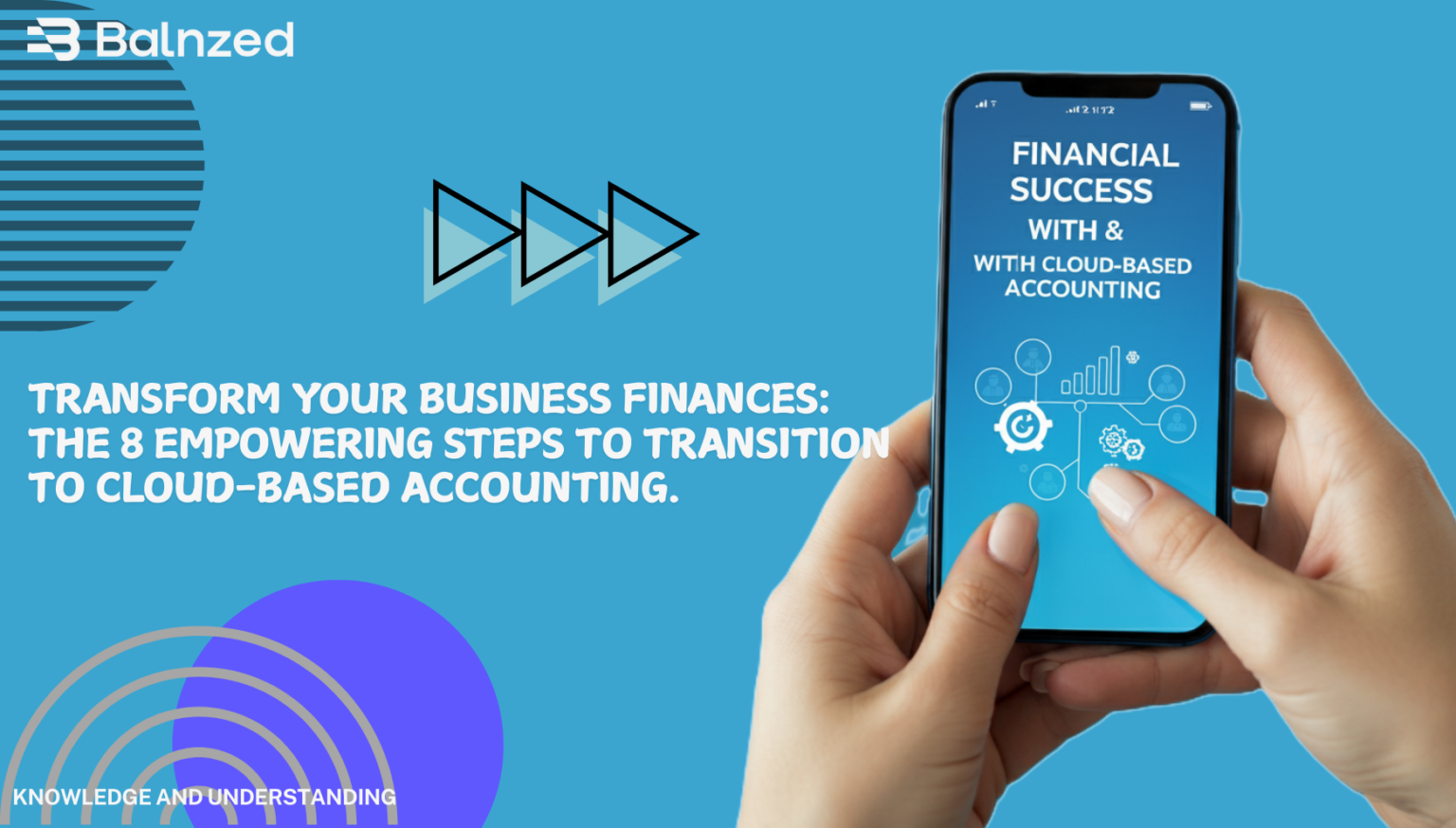Transform Your Business Finances: 8 Empowering Steps to Transition to Cloud-Based Accounting

Introduction
Audio listening
As a small business owner, managing your finances can be one of the most challenging yet critical aspects of running your company. Proper accounting not only helps you stay compliant, but it also informs vital decisions for growth and sustainability. In today’s digital age, cloud-based accounting software has emerged as a game-changer for small businesses across various industries, offering a more streamlined, flexible, and efficient way to manage financial information.
In this post, we’ll explore why cloud-based accounting matters, how it can drive financial success for your business, and highlight ways to seamlessly transition to this innovative accounting solution.
What is Cloud-Based Accounting Software and Why Does it Matter?
Cloud-based accounting software is a digital platform that allows you to manage your financial transactions, reports, metrics online and users can securely store transaction-related documents digitally, reducing the need for paper-based filing while ensuring 24/7 accessibility, typically through a subscription model. Instead of relying on outdated, local software installed on a single computer, cloud accounting tools are accessible from any device with internet connectivity. This functionality enables real-time financial tracking and collaboration from anywhere, which is especially important in an era where remote work is becoming commonplace.
Understanding how cloud-based accounting works is crucial for small business owners. It not only simplifies the accounting process but also enhances accuracy, improves collaboration with financial advisors, and offers scalability as your business grows.
The 8 Empowering Steps to Transition to Cloud-Based Accounting.
Shifting to cloud-based accounting may seem daunting, but breaking it down into manageable steps can make the process smooth and efficient. Here’s a guide to help you make the transition successfully:
1. Assess Your Needs
Before diving in, evaluate your current accounting processes. Identify pain points, specific features you require, and any integrations needed with other tools you might use. This assessment will guide your choice of software.
2. Choose the Right Software
Research various cloud-based accounting platforms available in the market. Look for features that suit your needs, such as invoicing, expense tracking, payroll management, and reporting capabilities. Companies like Balnzed offer unique features like AI and R&D, with our AI-enhanced tool for financial insights.
3. Set Up Your Account
Once you’ve chosen the right software, create an account and follow the onboarding process. This may include entering your business information, linking your bank accounts, and setting up your charts of accounts.
4. Migrate Your Existing Data
Transitioning doesn’t mean starting from scratch. Most cloud accounting software allows for easy data import from existing systems. Ensure your previous data—like invoices and customer information—are migrated accurately.
For example Balnzed accounting experts can help you migrate from Spreadsheets to SaaS accounting software such as Xero, MYOB, Reckon, Quicken etc. Please don’t hesitate to reach out.
5. Train Your Team
As a small business owner, it’s crucial to have a foundational understanding of accounting principles. Invest time into learning about financial management.
6. Take Advantage of Support
Using an accounting platform can come with questions or hurdles. Make use of customer support offerings, webinars, and community forums to enhance your understanding and resolve challenges faster.
7. Continuously Optimize
After transitioning, regularly assess how the software meets your needs. As your business evolves, your accounting software may require adjustments or new features. Keep an open line of communication with your software provider for updates and features that can further benefit your business.
8. Assess Data Security
When selecting a cloud-based accounting software, it is crucial to assess the data security measures the provider has in place. Ensure that the provider complies with all relevant rules and regulations for data protection. This includes adhering to standards such as data encryption, regular security audits, and compliance with data privacy laws, to ensure your data is secure.
Tips and Reminders for Cloud-Based Accounting
- Stay Updated: Periodically check for software updates to take advantage of new features and security enhancements.
- Set Up Alerts: Many cloud-based solutions allow for notifications; use these to remind you of due payments or upcoming deadlines quickly.
Transitioning to cloud-based accounting software can streamline your financial processes, improve accuracy, and free up valuable time to focus on growing your business. With features like those offered by Balnzed and the unique Balnzed tool powered by AI insights and R&D feature, you can position your business for success.
Ready to unlock the full potential of your accounting practices? Sign up for a 60-day free trial with Balnzed today and discover how our cloud-based accounting software can revolutionize your business finances. Don’t miss this opportunity to achieve financial clarity and control!



